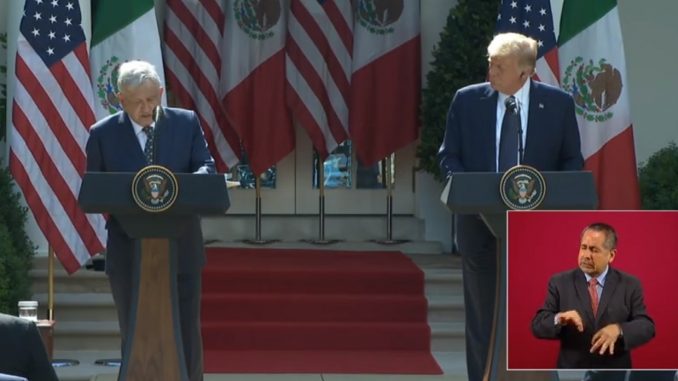
The Mexican president indicated that the treaty will recover the economic presence that North America has lost.
The presidents of the United States (USA) and Mexico signed the T-MEC free trade agreement this Wednesday at the White House, Washington, which they consider will consolidate economic and trade relations between the two nations along with Canada.
According to the President of Mexico, Andrés Manuel López Obrador (AMLO), this agreement represents a great achievement for the benefit of the three signatory nations and their peoples:
“It is inexplicably in deficit in commercial terms, since we export to the rest of the world 3,579 billion dollars, but we import only 4,190 billion dollars. In other words, we maintain a deficit of 611,000 trillion dollars, which translates into foreign currency flight, fewer opportunities for companies, and loss of job sources. ”
Likewise, the Mexican president indicated that the new treaty will reverse the imbalance through greater integration of the economies. In addition, this treaty will improve the functioning of production chains, which contribute to the recovery of the economic presence that North America has lost in the world during the last five decades.
In this sense, AMLO reported that this economic participation in the region has dropped to 27.8 percent, so the free trade agreement represents a
“Great option to produce, create jobs, as well as to promote commerce without the need to go as far from our homes, cities, states, and nations.”
The president assured that the import volumes carried out by Mexico, the United States and Canada, can be produced in North America, with lower transportation costs, with reliable suppliers for companies, and with the use of labor from the region. .
This, he explains, does not mean “closing ourselves off to the world, but rather taking advantage of all the advantages that the neighborhood offers us”, in addition to the application of a good development cooperation policy.
Likewise, AMLO indicated that the T-MEC will allow attracting investments from other parts of the hemisphere to the signatory countries, provided that production is done at home and with fair conditions for workers.

Be the first to comment